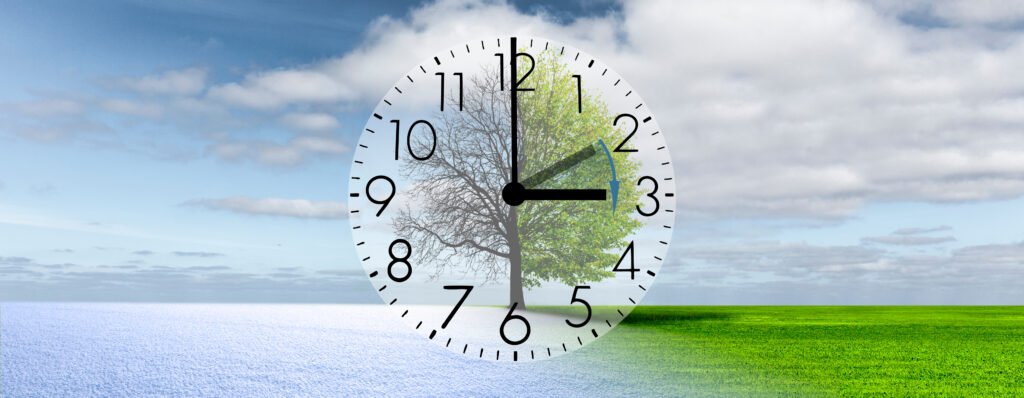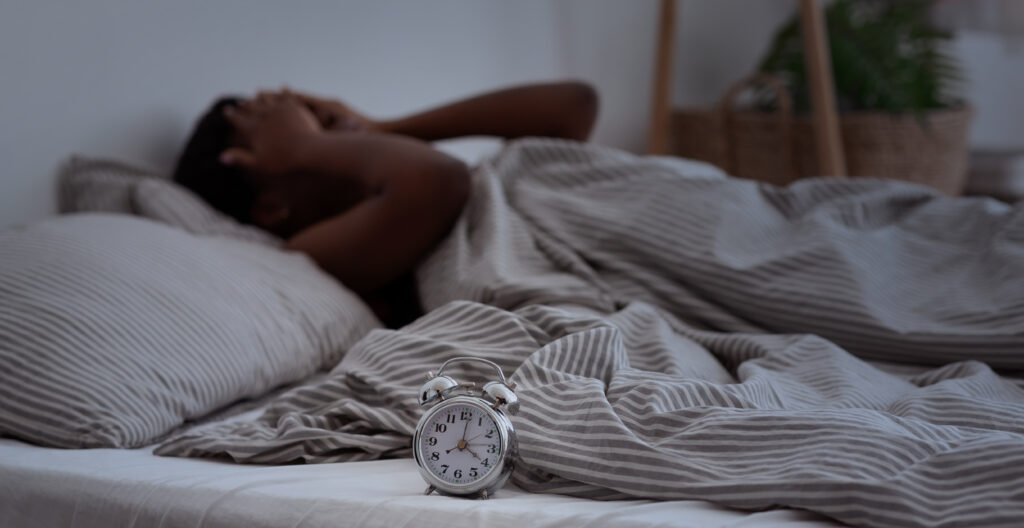Sleep
Daylight Savings Time Can Disrupt your Sleep Pattern
In addition to affecting your physical clock and schedule, daylight savings time also affects your psychological clock. In spring and summer, an hour is added to the end of each day, and in fall and winter, it is subtracted from the end of each day. As a result, it stays light outside for longer during the spring and summer and gets darker earlier in fall and winter.
Daylight savings time aims to give people more daylight during warmer months for outdoor activities. While this might seem like a good idea if you’re catching a baseball game or having a cookout, daylight savings time has consequences. The main downside is that it can negatively affect your sleep, resulting in occasional sleeplessness and difficulty falling asleep at night.

Is Daylight Savings Time Good or Bad For Sleep?
According to the American Academy of Sleep Medicine, daylight savings time negatively impacts sleep. Compared to other parts of the year, people are more likely to experience restlessness and occasional sleeplessness during daylight savings time. Therefore, the AASM believes that the United States should stop observing daylight savings time and switch to standard time.
Why Does Daylight Savings Time Negatively Impact Sleep?
The main reason daylight savings time affects sleep is because it messes with your circadian rhythm. Your circadian rhythm refers to your body’s natural sleep and wake schedule, which is based on a 24-hour day. Therefore, when we “spring forward” or “fall back,” we add or subtract one hour from the day.
Unfortunately, you can’t adjust your circadian rhythm the way you do your clock. Therefore, it cannot immediately adapt to sudden changes in time because the circadian rhythm is based on light and darkness rather than on hours and minutes.
As a result, the time on your clock doesn’t match your circadian rhythm, and it will be an hour ahead of or behind the actual time. Therefore, you will feel abnormally awake and alert when you gain an hour and unusually drowsy and tired when you lose one. The end result is that your sleep-wake schedule is off, and you struggle with occasional sleeplessness.
In fact, one study performed by the American Psychological Association found that people lose an average of 40 minutes of sleep during spring daylight savings time. While people don’t lose as much sleep during fall daylight savings time, the disruption can cause people to wake up earlier than normal and go to bed earlier than normal, throwing off their sleep-wake schedule.

Potential Health Problems Associated With Daylight Savings Time
Because daylight savings time affects the amount of sleep you get, it has several adverse effects on your health.
- Inadequate sleep can cause high blood pressure and hypertension.
- People who don’t get enough sleep are at higher risk of obesity and weight control issues.
- Lack of sleep can affect your cognition and ability to remember things.
Tips For Getting Better Sleep After Daylight Savings Time
Unfortunately, there is no indication that the United States is going to do away with daylight savings time. As such, it’s important to learn how to adapt to it with the following sleep tips:
- Don’t turn to alcohol to help you fall asleep at night, as it can lead to additional sleeplessness.
- Start going to bed 15 to 20 minutes earlier than normal, consistently.
- Spend as much time outside with natural light as possible.
- Avoid naps and excess caffeine to help you feel less sleepy.
In addition to these sleep tips, it can also help to take a sleep supplement. Consider Somni from Lane Innovative to help you fall asleep naturally after daylight savings without affecting your melatonin levels.*
Like? Share with your friends
Learn More Information on How Somni Can Offer You a Better Sleep Experience*

